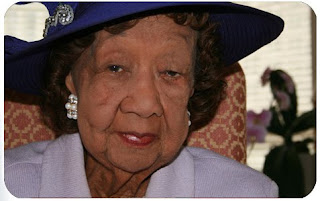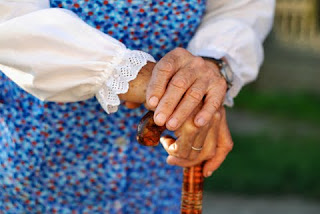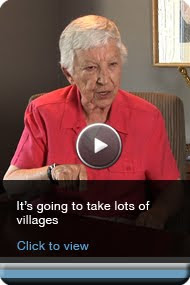 24 years ago (April 26, 1986) one of the reactors at the Chernobyl Nuclear Power Plant in Ukraine ( near Prypiat) had a meltdown. The resulting fire sent radioactive fallout into the atmosphere over an extensive geographical area. This accident is considered to be the worst nuclear power plant accident in history and generated concerns around the safety of nuclear power plants. Dr. Janette Sherman, editor of the book Chernobyl, discusses these concerns in a short video clip on icarevillage.com
24 years ago (April 26, 1986) one of the reactors at the Chernobyl Nuclear Power Plant in Ukraine ( near Prypiat) had a meltdown. The resulting fire sent radioactive fallout into the atmosphere over an extensive geographical area. This accident is considered to be the worst nuclear power plant accident in history and generated concerns around the safety of nuclear power plants. Dr. Janette Sherman, editor of the book Chernobyl, discusses these concerns in a short video clip on icarevillage.com
Monday, April 26, 2010
Chernobyl Anniversary Video
 24 years ago (April 26, 1986) one of the reactors at the Chernobyl Nuclear Power Plant in Ukraine ( near Prypiat) had a meltdown. The resulting fire sent radioactive fallout into the atmosphere over an extensive geographical area. This accident is considered to be the worst nuclear power plant accident in history and generated concerns around the safety of nuclear power plants. Dr. Janette Sherman, editor of the book Chernobyl, discusses these concerns in a short video clip on icarevillage.com
24 years ago (April 26, 1986) one of the reactors at the Chernobyl Nuclear Power Plant in Ukraine ( near Prypiat) had a meltdown. The resulting fire sent radioactive fallout into the atmosphere over an extensive geographical area. This accident is considered to be the worst nuclear power plant accident in history and generated concerns around the safety of nuclear power plants. Dr. Janette Sherman, editor of the book Chernobyl, discusses these concerns in a short video clip on icarevillage.com
Tuesday, April 20, 2010
Dr. Dorothy Height March 24, 1912 - April 20, 2010
Civil Rights Leader Dr. Dorothy Height celebrated her 98th birthday on March 24, 2010. Watch video interview done March 15, 2010.
Labels:
aging,
civil rights,
wisdom,
women's history month
Tuesday, April 6, 2010
Breast Cancer
Non-Modifiable Risk Factors
Two of the major risk factors for breast cancer can’t be controlled: Age and genetics. Incidences of breast cancer dramatically increase with age. Those who have a family history of breast cancer or who carry the gene for breast cancer are also at a higher risk.
Modifiable Risk Factors
Other risk factors can be influenced by lifestyle choices:
* Age at First Pregnancy
Women who have their first child after age 30 are at greater risk.
* Hormone Replacement Therapy
Women who take post-menopausal estrogen supplementation are at a greater risk.
* Childless
Women who don’t have children have a higher risk.
* Alcohol Intake
Having more than one drink a day puts a woman at higher risk.
* Body Mass
A higher body mass means a higher risk.
* Exercise
There is some evidence that regular exercise lowers risk.
more information
Two of the major risk factors for breast cancer can’t be controlled: Age and genetics. Incidences of breast cancer dramatically increase with age. Those who have a family history of breast cancer or who carry the gene for breast cancer are also at a higher risk.
Modifiable Risk Factors
Other risk factors can be influenced by lifestyle choices:
* Age at First Pregnancy
Women who have their first child after age 30 are at greater risk.
* Hormone Replacement Therapy
Women who take post-menopausal estrogen supplementation are at a greater risk.
* Childless
Women who don’t have children have a higher risk.
* Alcohol Intake
Having more than one drink a day puts a woman at higher risk.
* Body Mass
A higher body mass means a higher risk.
* Exercise
There is some evidence that regular exercise lowers risk.
more information
Tuesday, March 23, 2010
Video Interview - Caring For Aging Loved Ones
 Click here or on the picture to watch Jamie Spooner, CEO of icarevillage being interviewed on View From The Bay.
Click here or on the picture to watch Jamie Spooner, CEO of icarevillage being interviewed on View From The Bay.
Thursday, March 18, 2010
ABC View From The Bay
CEO Jamie Spooner of i care village will be a featured guest today on ABC's View From The Bay at 3:00. She will be sharing valuable medical, legal and insurance information that will help you be prepared as your parents and loved ones age.
Sunday, March 14, 2010
Tuesday, March 9, 2010
Women's History Month - Desegregation of Public Health Nursing
 Thereasea talks about her experience as a nurse in the south where she was faced with discrimination in KKK territory. Video
Thereasea talks about her experience as a nurse in the south where she was faced with discrimination in KKK territory. VideoMonday, March 8, 2010
Sunday, February 28, 2010
Friday, February 26, 2010
Sunday, February 14, 2010
Hoarding Frequently Asked Questions
1. What is the definition of compulsive hoarding?
2. What are some of the behaviors associated with hoarding?
3. What causes hoarding?
4. Should I just go in and clean out the home of my loved one who has a hoarding problem?
5. What treatment is available for compulsive hoarding?
Click here for answers...
2. What are some of the behaviors associated with hoarding?
3. What causes hoarding?
4. Should I just go in and clean out the home of my loved one who has a hoarding problem?
5. What treatment is available for compulsive hoarding?
Click here for answers...
Saturday, January 30, 2010
Friday, January 22, 2010
Power Up On Power Foods
Here are just some of the foods that are extremely rich in antioxidants and provide many health benefits:
Pomegranates
Blueberries
Strawberries
Citrus
Cinnamon
Green Tea
Black Tea
Tomatoes
Beans
Soy
Salmon
Click here for more nutrition information for the elderly
Pomegranates
Blueberries
Strawberries
Citrus
Cinnamon
Green Tea
Black Tea
Tomatoes
Beans
Soy
Salmon
Click here for more nutrition information for the elderly
Thursday, January 14, 2010
Video Of The Week
Wednesday, January 13, 2010
Type 2 Diabetes - Who's At Risk"
 Type 2 Diabetes: What is Diabetes?
Type 2 Diabetes: What is Diabetes?Type 2 diabetes is a chronic condition in which the body resists the effects of insulin and therefore can't maintain a normal blood sugar level. There's no cure, but type 2 diabetes can be managed and even prevented. If it's not detected and controlled, it can wreak havoc on vital organs and can even cause death
The Signs Are Subtle
The symptoms for type 2 diabetes are often subtle and easily dismissed as just another side effect of aging. Ask your aging parents or loved ones if they have experienced any of these warning signs:
Extreme thirst and frequent urination
Sores that are slow to heal
Increased hunger
Unexplained weight loss
Bladder and vaginal infections
Vision problems
Tiring easily.
more
Extreme thirst and frequent urination
Sores that are slow to heal
Increased hunger
Unexplained weight loss
Bladder and vaginal infections
Vision problems
Tiring easily.
more
Sunday, January 10, 2010
Stress And An Aging Parent or Grandparent
Thursday, January 7, 2010
Who's Paying The Bills Now?

What do you do when a parent or loved one who has handled the family finances for years is suddenly not capable to continue?
- Close your eyes and hope they pay themselves.
- Throw up your hands and yell “Uncle!”
- Spend a lot of money to pay a professional to figure it out for you.
- Do it yourself.
Labels:
aging,
aging in place,
alzheimer's,
caregivers,
dementia,
independent living,
seniors
Subscribe to:
Comments (Atom)










